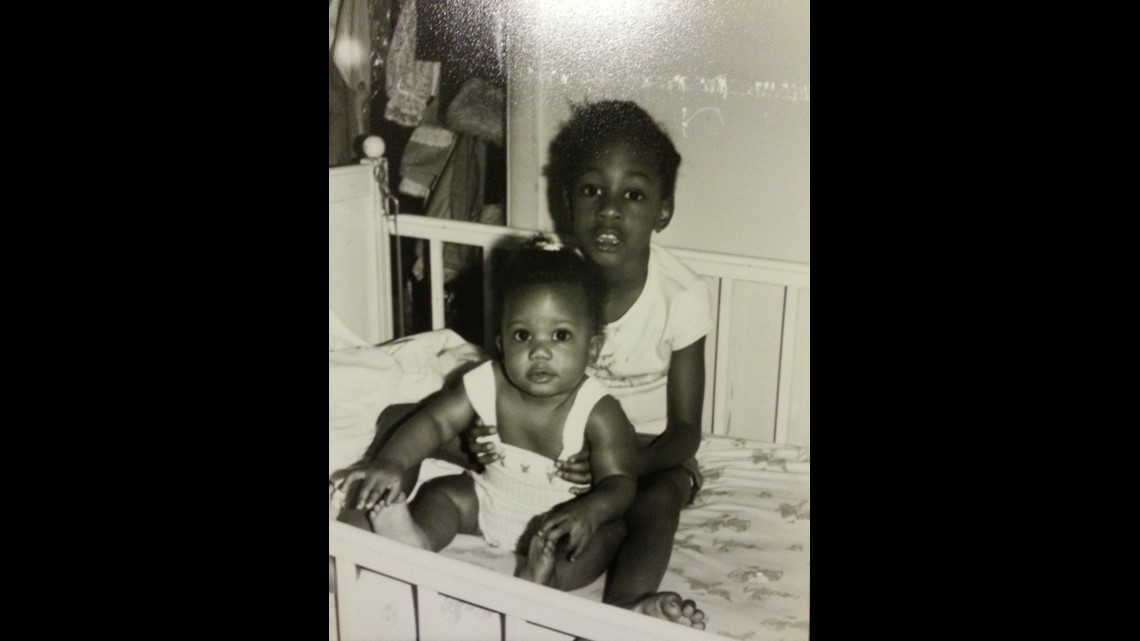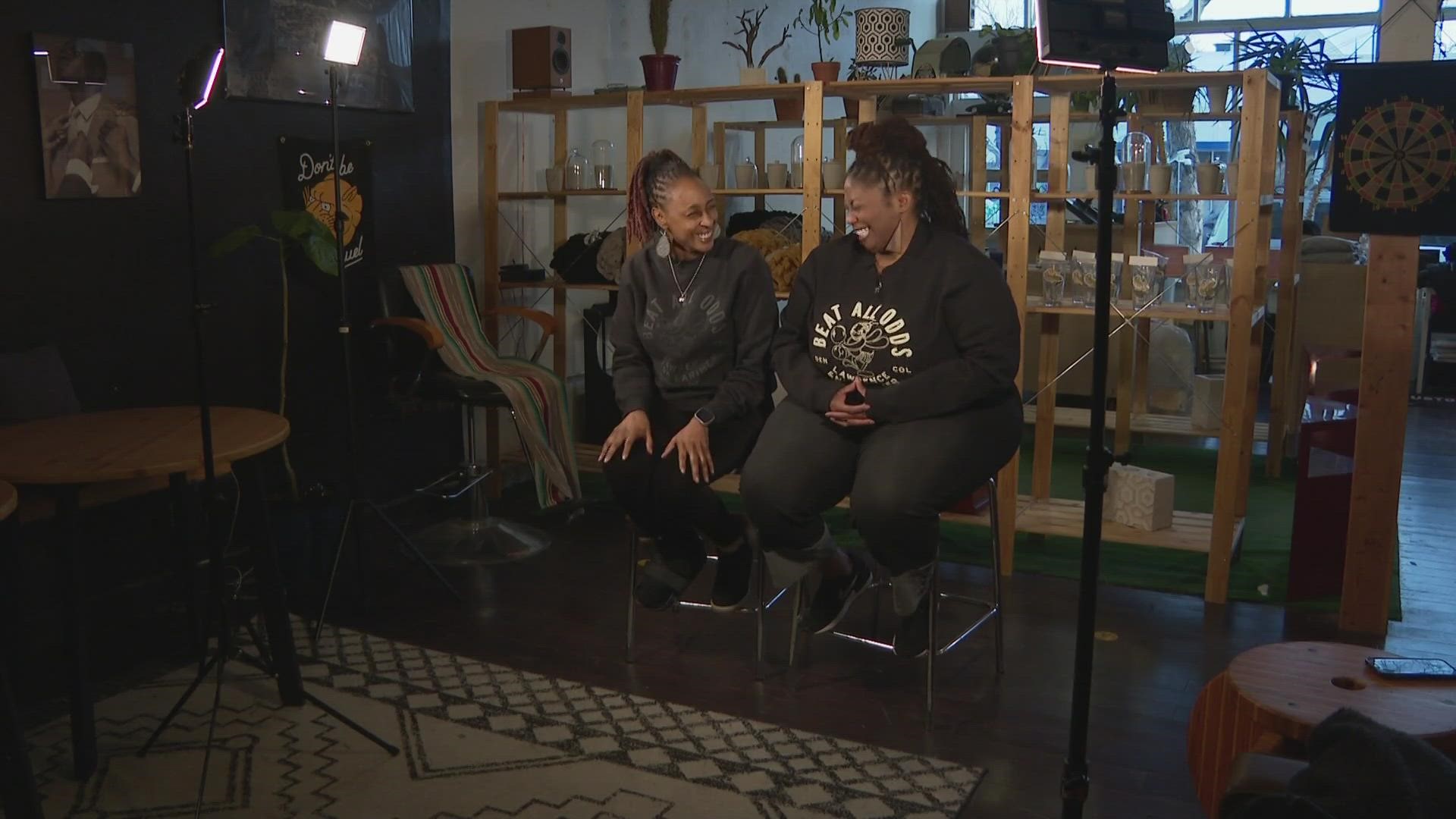DENVER — Historically, the stigma surrounding mental health in the Black community has prevented Black people from seeking treatment.
For sisters Joslyn Ford Keel and Stacie Potts, they are using their foundation to raise awareness, connect, and expand access to mental health resources in the Black community.
The sisters have always been close, as a photo of Stacie sitting in Joslyn's crib with her proves but for a long time, Joslyn kept a secret.
She struggled with her mental health.
"It started as a Black child," she said. "It just wasn’t something that was spoken about freely in our community in our family...I actually attempted suicide for the first time at seven, on a curtain in my parent's house."


It wasn't until Joslyn was in high school that she wrote Stacie a letter explaining her struggles with depression and anxiety.
Stacie changed her college major to psychology because of it.
“I never wanted to, number one let her down, but I also didn’t want to be a burden," said Joslyn. "She had already changed her major in college for me.”
When Joslyn was a senior in college there was an "explosion," as the sisters called it, that ended with Joslyn in the psychiatric ward after another suicide attempt.
While there, she wrote a journal entry that became a song, called Count Joy.
Years later, she was about to sing that song on stage, when she shared publicly that she wrote it after attempting suicide.
"People started texting, asking about therapists, and therapy and one friend a Black man, said “I have a therapist but I don’t think she believes me," said Joslyn.
She continued receiving support and messages from other Black people who related to the struggle.
"More and more people, a lot of black women specifically started saying I need a therapist, but I really, really, I want another Black woman," said Joslyn.
The sisters decided to become that connection by creating the Count Joy Network, a foundation that simply connects Black people to Black therapists.
According to the American Psychological Association, only about 5% of psychologists in the United States are Black.
"Being a therapist of color has allowed me to open the door that other people can come in and just get started right away without having to provide the historical context, or explain their community, or explain how current events are impacting them, because as a therapist, I feel it too," said Michelle Simmons, a Licensed Professional Counselor.
It wasn't until 2020 after George Floyd was killed, that Michelle said people began seeking her out because she was Black. She said insurance companies became aware of the need, and added demographic information when adding in-network practices.
Michelle even expanded her practice to be a group model in order to train more Black women to become licensed.
"I never planned on being anybody’s boss," she said. "But the need was so great, and I felt very obligated to do so."
It is a need Joslyn not only knows, but has felt herself.
"Had it not been for clinical therapy and pharmaceuticals I would probably have been gone for a few decades now," she said.
List of Colorado Mental Health Resources
Colorado Crisis Hotline: 1-844-493-8255
Mental Health Crisis Centers:
- Aurora Walk-in Crisis Center: 2206 Victor St., Aurora, CO 80045
- MHCD Walk-in Crisis Center: 4353 E. Colfax Ave., Denver, CO 80220
- AllHealth Network-Crisis Walk-in Center: 6509 S Santa Fe Dr., Littleton, CO 80120
- Jefferson Center Walk-in Crisis Center: 4643 Wadsworth Blvd., Wheat Ridge, CO 80033
Mental Health Services & Support:
- Count Joy Network: CountJoyNetwork@gmail.com
- Vivent Health: Available to anyone despite their ability to pay. 5250 Leetsdale Drive, Suite #300, Denver, CO 80246 / Contact: 303-393-8050
- It Takes a Village: Holds various peer-led support groups for Black and Indigenous community members. 1475 Lima St., Aurora, CO 80010 / Contact: 303-367-4747
- Servicios de La Raza: Offers HIV support groups in order to enhance social support, self-efficacy, self-advocacy, and to reduce social isolation. 3131 W. 14th Avenue, Denver, CO 80204 / Contact: 303-458-5851
Full list of available mental health resources for the Denver-metro area can be found here.
SUGGESTED VIDEOS: Telling Black Stories

